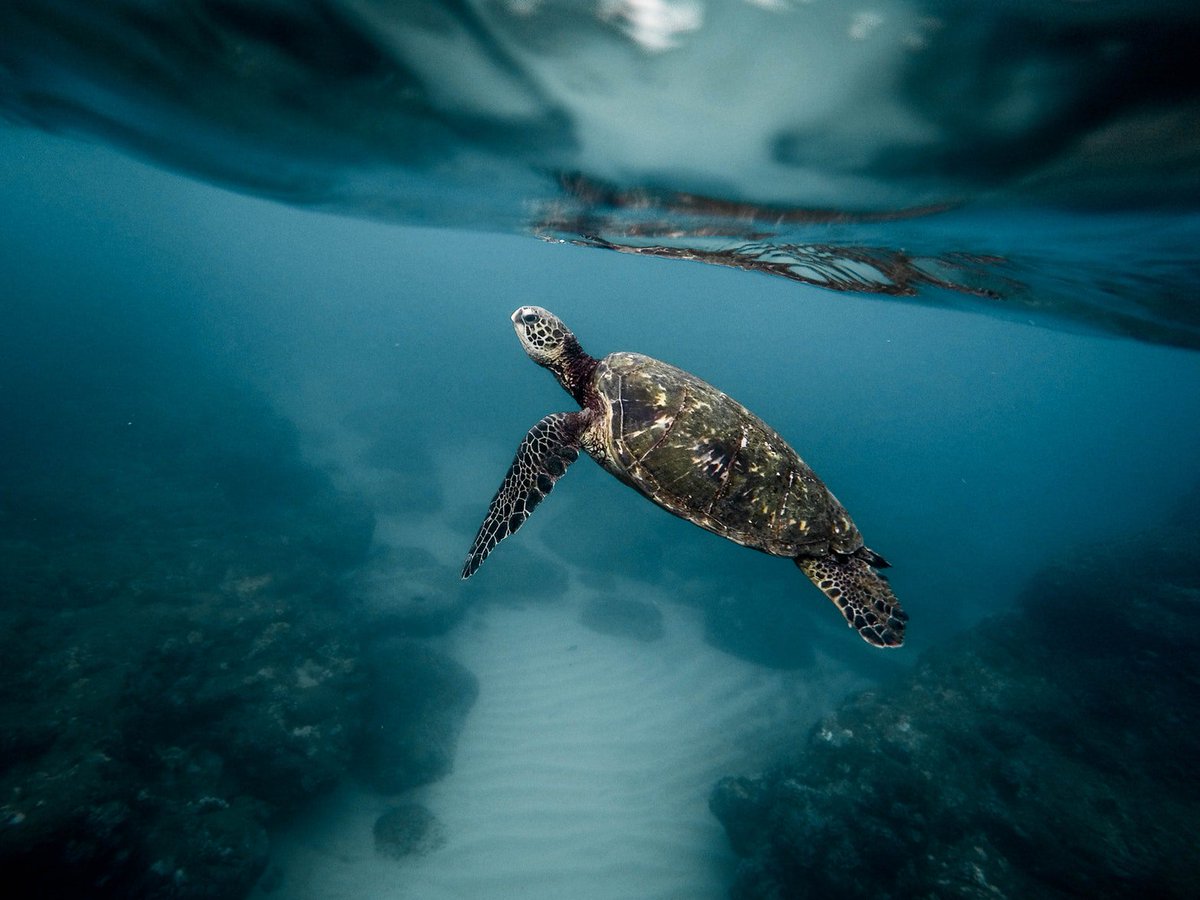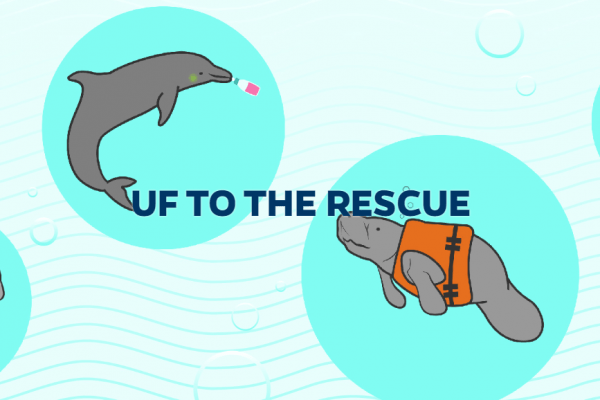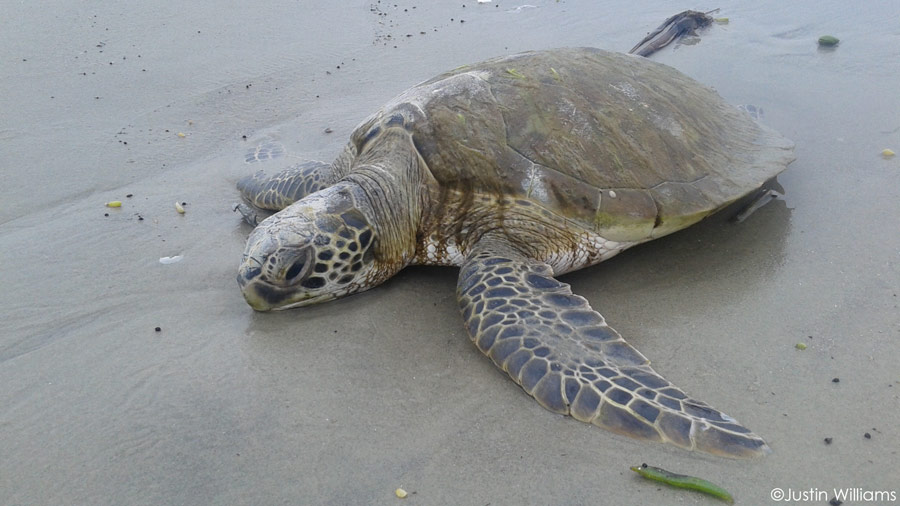Like all reptiles, sea turtles are ectothermic (cold-blooded) and cannot regulate their body temperature. If water temperatures drop below approximately 50°F (10°C), sea turtles become lethargic and are unable to swim, so they can be hit by a boat, are unable to find food or escape predators, and in the worst case they can drown and die.

What is Cold Stunning?
Cold stunning is the hypothermic reaction that happens in sea turtles when they are exposed to cold water temperatures for a long period of time. … So when they’re in cold water, they don’t have the ability to warm themselves. If the turtles cannot find warmer conditions, they could eventually die.
How the UFMAR and FWC Help
 Once the UFMAR or FWC receives a report of a cold-stunned sea turtle, staff members coordinate with local sea turtle volunteers and facilities to survey the shoreline and coastal waters looking for sea turtles that have become stranded or that are floating at the surface, unable to move. Under the direction of the area’s FWC Sea Turtle Stranding Coordinator, animals are collected and transferred to a central location. The turtles are then placed in a covered vehicle and transferred to an appropriate facility where they are examined by veterinarians and other FWC-permitted staff who have experience working with sick or injured sea turtles. Citizens who spot cold-stunned or stranded sea turtles should contact the FWC Wildlife Alert Hotline at 888-404-FWCC (3922) or the University of Florida Marine Animal Rescue (UFMAR) at 352-477-0344 which are 24/7 lines.
Once the UFMAR or FWC receives a report of a cold-stunned sea turtle, staff members coordinate with local sea turtle volunteers and facilities to survey the shoreline and coastal waters looking for sea turtles that have become stranded or that are floating at the surface, unable to move. Under the direction of the area’s FWC Sea Turtle Stranding Coordinator, animals are collected and transferred to a central location. The turtles are then placed in a covered vehicle and transferred to an appropriate facility where they are examined by veterinarians and other FWC-permitted staff who have experience working with sick or injured sea turtles. Citizens who spot cold-stunned or stranded sea turtles should contact the FWC Wildlife Alert Hotline at 888-404-FWCC (3922) or the University of Florida Marine Animal Rescue (UFMAR) at 352-477-0344 which are 24/7 lines.
After Recovery

Once the cold-stunned turtle begins to revive, it is placed in warm salt water to bring its body temperature back to normal. Each animal is thoroughly examined for injuries, and is measured, weighed, and tagged with a unique identification number. Rescued sea turtles are released back into the wild as quickly as possible. Interested people can find more information about sea turtles at https://myfwc.com/wildlifehabitats/wildlife/sea-turtle/ and at https://aquatic.vetmed.ufl.edu/services/stranding-response/ or contact the Marine Extension Agent, Victor Blanco, at the Taylor County Extension Office 850-838-3508.
 0
0
